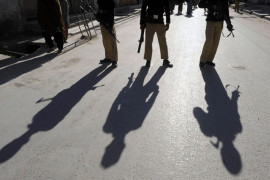
I find myself short of words to express my feelings in relation to the recovery of the little girls from Karachi who belong to my village in Bajaur Agency. I can clearly recall the day from almost half a decade ago when I had to call the parents of a few minor girls in my hometown, Pashat, to inquire if they had personally visited the madrassas in Karachi they were sending their children to. It turned out that not only were they unaware of the location but had never even been contacted by its staff. They were not even allowed to contact their daughters, aged 4 to 12, more than once or at most twice a year.
We did all we could to convince the parents to bring back the girls. Our efforts resulted in getting some of them back to their homes but at the same time we were faced with a situation, which only people from the tribal areas would understand best. Those who did not want to bring back their daughters started a campaign against us and called us ‘kafirs [infidels]’. They considered us a hindrance to the ‘religious education’ of their children. This propaganda sent us into silence but four, five batches later we witnessed 26 girls from the same madrassa left at someone’s doorstep to settle a less than Rs200,000 loan dispute.
We, the people of Fata, are considered as cannon fodder. Four people die in Lahore, very unfortunate, the whole country drowns in sorrow; scores of people die in Fata every day but the status of being considered as cannon fodder is somewhat different from being a citizen of the state.

Through all the bomb blasts, all the target killings, all the operations, I thought our collective conscience had died a slow death but then these girls are recovered – an incident that has arguably shaken the conscience of many of us. People are trying to help us find a reason for it so we can satisfy our mind and move on. Lack of education is one of them, so is the lack of monetary resources and so forth. For once I want to believe them so I too could move on and relieve myself of this burden, but I cannot.
Our grandparents were mostly uneducated and had the scarcest of resources at their disposal. The wheat or maize lasted only till the eleventh month of the year. What they wouldn’t run out of was teaching their children compassion, respect and empathy as well as prayers – all by themselves. The parents of the recovered girls, and I have met almost all of them, carry a cell phone, have their boys studying in schools with fees ranging from Rs800 to 1000 a month, have never run out of bread. In fact, they might be living a better life than a fairly large population but what they have run short of is the will to educate their children themselves, not just with ‘Alif, Bay, Pay’ but also with things their own parents had painstakingly taught them.
With more than 64,000 children out of school and the world’s highest growth rate, one cannot help but wonder as for how long would tragedies of the sort keep occurring? And as a consequence we might develop a moral immunity against such atrocities.
The solution is in inclusion, marginalization would most certainly bring our worst nightmares to life. The writer, formerly with The Express Tribune, is now a political worker and Fata rights activist.
Published in The Express Tribune, November 29th, 2014.
COMMENTS (2)
Comments are moderated and generally will be posted if they are on-topic and not abusive.
For more information, please see our Comments FAQ
1724657897-0/Untitled-design-(2)1724657897-0-405x300.webp)
















I agree with your statement about parents not giving their children time to educate them on a personal level. The guilt that often arises from such consequences leads them to fall into the madrassa phenomenon, having made believe that their kids are getting the best of the best; something the parent's are unable to give them. Which is sadly not the case in all scenario's.
RIP Phillip Hughes